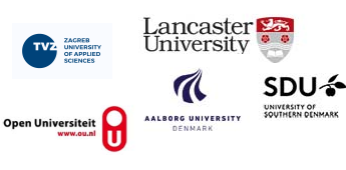

Project Pulse: co-designing the ‘smart’ campus with Internet of (teaching and learning) Things
Jeremy Knox
The University of Edinburgh, Edinburgh, United Kingdom.
Keywords
Internet of Things, IoT, speculative methods, design fictions, surveillance, ethics
Abstract
This short paper describes a research project which aims to co-design prototype Internet of Things (IoT) technologies with staff and students at a higher education institution in the UK. However, rather than adopting a technical approach, which would perceive devices simply as ‘problem solving’ instruments, this project seeks to engage with critical approaches to IoT through the use of speculative methods (Ross 2016), such as ‘design fictions’ and ‘objects-to-think-with’. This approach is intended to surface crucial conceptual and ethical issues for education, such as the radical intensification of digital networks potentially engendered by this technology, and the prospect of increasing surveillance and diminishing privacy in an era of ubiquitous connection. These are questions too often overlooked in the habitual forecasting and advocacy of ‘new’ educational technology, but also in the engrained approaches to ‘solutionist’ (Morozov 2013) technology design. This paper will outline the two initial stages of this ongoing project: firstly, the development of preliminary IoT provocations; and secondly, the outcomes from co-design workshops with staff and students. The preliminary IoT devices include: campus motion and sound-level sensors; live public PC login feeds from across the campus; collated social media feeds from distance students; wearable smart watches configured to receive feed data; a smart phone app with interactive functions that can respond to feed notifications; and a web-based interface to visualise the range of data feeds. These devices were produced to demonstrate specific, and provocative, educational applications of IoT technologies, and to encourage responses from workshop participants. The second stage will describe outcomes from two co-design workshops: the first with campus-based and distance students; and the second with teaching staff at the institution in question (scheduled for November 2017). Grounded in the themes of ‘presence’, ‘community’, and ‘surveillance’, these workshops are designed to elicit critical responses to IoT technologies in higher education through the development of speculative designs that 1) enact key issues for students and teachers by modelling practice, and 2) offer creative alternatives to established design cultures by resisting, and obfuscating (Brunton & Nissenbaum 2013) the drive for ‘big data’ collection and its promoted efficiency gains. Drawing on these designs, this paper will conclude with, not only the key challenges that students and teachers perceive in the networked futures of higher education, but also creative visions for alternative technologies that can approximate new ways of connecting the humans and ‘things’ involved in education.
Joint Organising Institutions
Open University of The Netherlands
| Past Conference Proceedings | Contact |